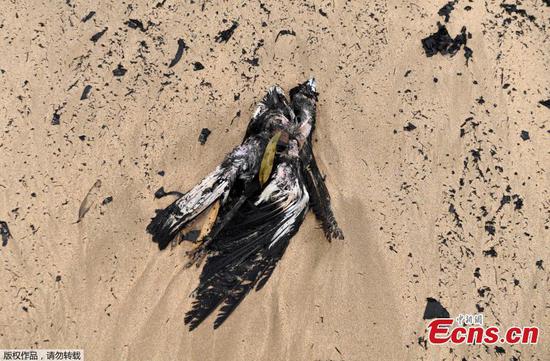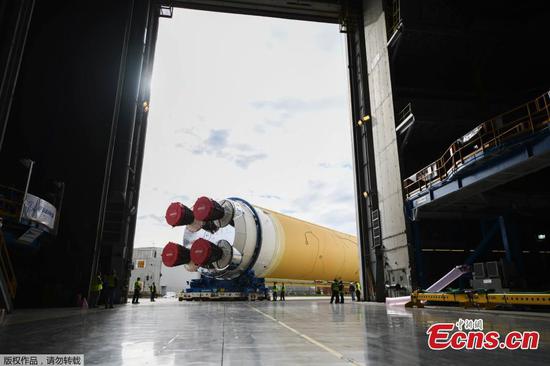Editor's note: In response to the U.S. drone attack that killed Iranian general Qassem Soleimani near Baghdad airport on Thursday, Teheran has announced that it will no longer abide by the restrictions on its nuclear enrichment it agreed to in the 2015 nuclear deal. By launching yet another military strike, the U.S. seems to have opened a Pandora's box in the Middle East. Three experts share their views on the issue with China Daily's Liu Jianna. Excerpts follow:
Teheran could target U.S. bases in Mideast
The assassination of Soleimani is part of a much larger U.S. strategy, which started during the Iraq war in 2003, to paralyze the command system of the "enemy" and render its military ineffective. And although the two long-term foes are engaged in a war of words, and hopefully do not declare war on one another, the U.S. attack has stirred up a hornet's nest.
For Teheran, it has vowed to avenge the killing of Soleimani. In fact, Iran's resolve is reflected in the rising nationalist sentiments across Iran following the general's killing. The widespread demonstrations against the Iranian government in protest against rising oil and commodity prices, for instance, have given way to large-scale anti-U.S. rallies in Iran. The U.S. action appears to have united Iranians like never before.
The problem is Teheran has few bargaining chips. And it knows full well that it will bear the brunt if a war or large-scale confrontation breaks out, not least because Iran is surrounded by U.S. military bases.
At best, Iran could target U.S. facilities and military bases in the Middle East. Declaring a war against the U.S. in the name of national pride is not an option for Iran. Iran may target U.S. forces overseas with the help of proxies, at the most. But this could lead to heightened vengeance from the U.S.. Trump doesn't want a repeat of the hostage crisis in election year.
Yet, by assassinating the Iranian general, the U.S., as the only superpower, has once again demonstrated its hegemonic behavior — that it does not need evidence to justify its actions no matter how unreasonable they are.
More important, the U.S. president needed to make such a move to garner voters' support in the run-up to the presidential election in November. After all, for American politicians, safeguarding U.S. interests overseas and supporting Israel against Iran mean acquiring political capital in the form of the Jewish community's support.
This incident will roil the international oil market for some time mainly because of the threat to the shipping lanes in the Persian Gulf, through which 30 percent of global oil exports pass.
Ma Xiaolin, dean of the Institute for Studies on the Mediterranean Rim, Zhejiang International Studies University
Chances of a war remain slim
Abandoning commitments to the nuclear deal is a way of protesting for Iran. Indeed, Soleimani was a national hero and his death has come as a blow to Iran's military and public alike, but Iran has still left itself some leeway by saying it could reverse its decision of seeking revenge if the U.S. lifts the sanctions.
Although there are a few pro-U.S. forces in Iran, the assassination of Soleimani has galvanized the whole of Iran in a consolidated anti-U.S. force, and the situation might remain so for long. More important, the possibility of talks between the two countries has been reduced to zero. And the rising nationalist fever could help Iranian President Hassan Rouhani to introduce some tough policies against the U.S..
Despite that, the chances of a U.S.-Iran war are slim, as neither side wants an all-out war. Yet the possibility of either side sparking a conflict with a wrong move cannot be ruled out.
Besides, Iran may not have the military might to attack the U.S., but it could target the U.S.' core allies in the Middle East and block the Strait of Hormuz, which would hurt U.S. interests. But overall, Soleimani's assassination will not significantly brighten U.S. president's re-election prospects. Whether the U.S. leader will win the confidence of American voters mostly depends on what he does at home.
Li Weijian, a senior research fellow at the Institute for Foreign Policy Studies, Shanghai Institutes for International Studies
Iran may seek global support against U.S.
First, the U.S.' brazen killing of Soleimani, who was in Baghdad to discuss ways to "de-escalate tensions between Saudi Arabia and Iran" and "mediate relations between Iraq and Iran", is against international law.
The U.S. action also exposes its wanton disregard for peace and stability in the Middle East and the capriciousness of its Iran policy, which engenders risks more than generally assumed. And the U.S. president's claim of targeting Iranian cultural sites sounds like the remark of harebrained leader rather than the U.S. commander-in-chief.
Apart from putting Iran in a fix, the U.S. also aims to shore up oil prices by causing turmoil in the Middle East, in order to make major economic gains. The strong commercial motive behind the U.S. move should not be ignored.
Not only has the White House's action aroused Iranians' anti-U.S. sentiments, it will also increase the contradictions between the West and the Muslim world. And the anti-U.S. sentiments Soleimani's assassination has aroused in Iran may be harder assuage.
The situation may not spiral out of control in the short term given that Teheran has never gone to extreme lengths in the four decades since the Iranian Revolution despite obvious U.S. provocations, yet Soleimani's assassination has given Iran a convenient excuse to abandon the 2015 nuclear deal.
Iran will not seek traditional military revenge either, because it is no match to the U.S. in military power. In the past, even when the two countries were on the brink of a war, Iran refrained using its military power to avenge U.S. actions. After all, Iran is not a country without reason, and it will not change its 40-year-old policy of restraint overnight, at least for the time being.
Instead, Iran is trying to claim the moral high ground by soliciting support from countries including Iraq to turn international organizations and public opinion against the U.S. for its irresponsible behavior. It may also appeal to the United Nations Security Council and the International Criminal Court seeking judicial arbitration.
Zhu Feng, dean of the Institute of International Relations of Nanjing University


















































